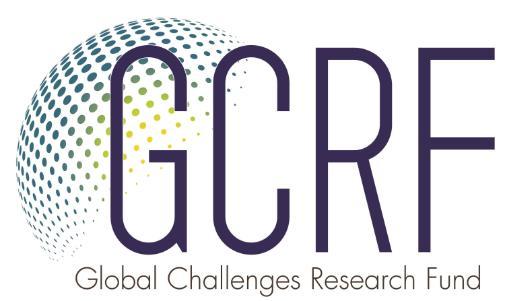CHE awarded major funding to tackle global health challenges
Posted on Friday 21 July 2017

The Research Councils UK Collective Fund is supporting a £6.6m project, led by Professor Mark Sculpher and Paul Revill, looking at ways of improving the health of the population in Malawi as well as reducing health inequality in the country.
The Thanzi la Onse (Health of All) project will work closely with policy-makers in Malawi and Uganda to support them in using data produced by the study to inform national health care budgets and resource allocation.
It is hoped the model can be further developed and used as a template to address the resource allocation challenges facing other countries in Africa.
Mark Sculpher said: "Thanzi la Onse will apply evidence and high-quality analysis to support challenging resource allocation decisions in health systems in southern and eastern Africa."
“The UK has been at the forefront of developing such methods for use in the NHS, and now we have the opportunity to work with international partners to further develop and employ them to meet the varied challenges faced in low income settings."
Dr Benson Chilima, Deputy Director of Preventive Health Services, Ministry of Health and Executive Director, Public Health Institute of Malawi, added: “The Ministry of Health has had long-standing relationships with the University of York and other Thanzi la Onse partners to support capacity development in health economics and evidence based medical decision-making in Malawi."
“The programme will enable us to strengthen and enhance these partnerships, with potentially transformative effects on health care delivery and the health of Malawians over the longer-term."
In a separate funding announcement, a team led by Professor Marc Suhrcke has been awarded a grant to help improve the understanding of how major system changes affect population health outcomes.
The £2m three year project will be funded by the National Institute for Health Research (NIHR) via the Global Health Research Group on Global Health Econometrics and Economics (GHE2) at the University of York. GHE2 researchers will evaluate several large-scale health policies in Brazil, South Africa and Indonesia.
Marc Suhrcke said: “The award is a great recognition and stimulus for CHE’s emerging role in Global Health research.”
“Working with leading institutions in three partner countries, GHE2 focuses on producing high quality, policy-relevant evidence about population and health system level interventions which are hard to evaluate using randomised controlled trials but have the potential for large impacts on health and wellbeing.”
“This helps fill a critical evidence gap by applying and developing methods to estimate the impact of such interventions, and assess their value-for-money.”
Notes to editors:
- Research Councils UK (RCUK) is the strategic partnership of the UK’s seven Research Councils. Our collective ambition is to ensure the UK remains the best place in the world to do research, innovate and grow business. The Research Councils are central to delivering research and innovation for economic growth and societal impact. Together, we invest £3 billion in research each year, covering all disciplines and sectors, to meet tomorrow’s challenges today. Our investments create new knowledge through: funding research excellence; responding to society’s challenges; developing skills, leadership and infrastructure; and leading the UK’s research direction. We drive innovation through: creating environments and brokering partnerships; co-delivering research and innovation with over 2,500 businesses, 1,000 of which are SMEs; and providing intelligence for policy making. Find out more about our work at www.rcuk.ac.uk.
- The Global Challenges Research Fund (GCRF)
GCRF is a £1.5 billion fund that supports cutting-edge research which addresses the global issues faced by developing countries. It harnesses the expertise of the UK’s world-leading researchers, focusing on: funding challenge-led disciplinary and interdisciplinary research; strengthening capacity for research, innovation and knowledge exchange; and providing an agile response to emergencies where there is an urgent research need. It forms part of UK Government’s Official Development Assistance (ODA) commitment and is overseen by the Department for Business, Energy and Industrial Strategy (BEIS), and delivered through 17 delivery partners including the Research Councils, the UK Academies, the UK Space Agency and funding bodies.
- More details on the grants can be found in the Growing research capability to meet the challenges faced by developing countries brochure.
- The National Institute for Health Research (NIHR): improving the health and wealth of the nation through research. Established by the Department of Health, the NIHR:
- funds high quality research to improve health
- trains and supports health researchers
- provides world-class research facilities
- works with the life sciences industry and charities to benefit all
- involves patients and the public at every step
For further information, visit the NIHR website (www.nihr.ac.uk).
- This call for research was commissioned by the National Institute of Health Research using Official Development Assistance (ODA) funding. The views expressed in this publication are those of the author(s) and not necessarily those of the NHS, the National Institute for Health Research or the Department of Health. For more information on the NIHR Global Health Research Units and Groups, please visit: https://www.nihr.ac.uk/news/nihr-invests-over-120-million-in-supporting-world-class-global-health-research-and-announces-a-new-call-for-research/6506
